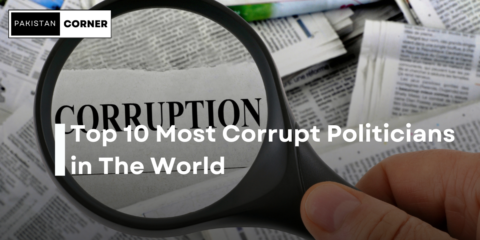

Top 10 Most Corrupt Politicians in The World

Jazz Monthly Premium Package 2024 | 25GB Code & Price

Unleashing the Power of AI: The Ultimate Guide to the Best AI Paragraph Generator

How to Check SCOM Balance? 2024 | SCOM Balance Check Code

Telenor IMO Packages Daily, Weekly & Monthly Code 2024

Telenor Load Reversal Code 2024 | Reverse Telenor Easy load
Nothing Found! Ready to publish your first post? Get started here.
Nothing Found! Ready to publish your first post? Get started here.
Picked
Nothing Found! Ready to publish your first post? Get started here.
Latest

Politics
Top 10 Most Corrupt Politicians in The World
Explore the dark realm of power and deceit with our deep dive into the top 10 most corrupt politicians in the world, unmasking the impact of their actions on global
The Pakistan Corner Team1 hour agoKeep Reading

Jazz
Jazz Monthly Premium Package 2024 | 25GB Code & Price
The Jazz Monthly Premium Package for 2024 offers a substantial deal of 25GB of data and 500 all-network minutes for PKR 868, valid for 30 days. To subscribe, dial *2000#
The Pakistan Corner Team4 days agoKeep Reading

Tech
Unleashing the Power of AI: The Ultimate Guide to the Best AI Paragraph Generator
In the ever-evolving world of digital content, the demand for quality, engaging, and SEO-optimized text is paramount. As content creators, we face the challenge of producing large volumes of text
The Pakistan Corner Team4 months agoKeep Reading

How To
How to Check SCOM Balance? 2024 | SCOM Balance Check Code
If you are a SCOM user, it is essential to know how to check SCOM balance to avoid any unexpected situations. Fortunately, there are several easy methods to check the
The Pakistan Corner Team10 months agoKeep Reading
Load More
Latest

Politics
Top 10 Most Corrupt Politicians in The World

Jazz
Jazz Monthly Premium Package 2024 | 25GB Code & Price

Unleashing the Power of AI: The Ultimate Guide to the Best AI Paragraph Generator

How to Check SCOM Balance? 2024 | SCOM Balance Check Code

Telenor IMO Packages Daily, Weekly & Monthly Code 2024

Telenor Load Reversal Code 2024 | Reverse Telenor Easy load
Picked
Nothing Found! Ready to publish your first post? Get started here.
Categories
Zong
23
Ufone
7
Telenor
22
Telecom
99
Tech
26
Gadget
Top 10 Most Corrupt Politicians in The World
Jazz Monthly Premium Package 2024 | 25GB Code & Price
Unleashing the Power of AI: The Ultimate Guide to the Best AI Paragraph Generator
How to Check SCOM Balance? 2024 | SCOM Balance Check Code
Join Us
Facebook
42.4K
Twitter
36.2K
Instagram
24.6K
Twitch
83.4K
Quotes
This is where I have wasted the best years of my life.
Greta Garbo